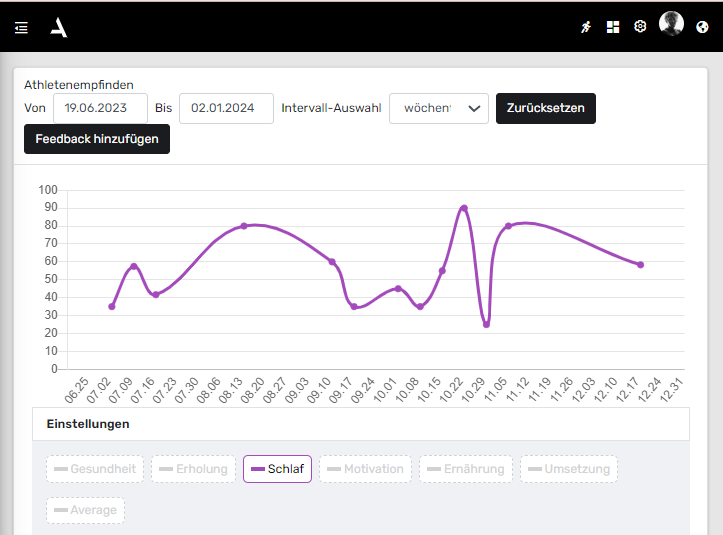For athletes, sleep is a crucial factor when it comes to recovery and performance. A sufficient amount of good quality sleep can put the body in a restful state and speed up physical and mental recovery after training. During sleep, various growth hormones are released that are responsible for the repair and renewal of tissues and cells in the body. This is particularly important for athletes, as the body is regularly exposed to stress and strain during training and regeneration processes are necessary for optimal performance.

The immune system
The body uses sleep to strengthen our immune system and regenerate the nervous system. A sufficient amount of sleep can also help to reduce stress hormone levels in the body. This is a prerequisite for the body to fully recover from the stresses of training.
How long do I have to sleep?
In terms of sleep duration, endurance athletes should try to get at least seven to nine hours of sleep per night. However, it is also important to note that the quality of sleep is just as important as the duration. If an athlete struggles to get a sufficient amount of quality sleep, this can lead to impaired recovery processes and a deterioration in athletic performance.
Our tips for you
Some of the most important points that athletes should consider to ensure good quality sleep are:
- Regularity: Athletes should try to maintain a regular sleep rhythm by going to bed and getting up at the same time every day.
- Darkness: A dark room can promote sleep as it signals to the body that it is time to rest. Athletes should therefore avoid exposing themselves to too much light before going to bed, e.g. by using electronic devices such as cell phones or laptops.
- Room temperature: A moderate room temperature of around 18-20 degrees Celsius can help the body to rest and create an optimal sleeping environment.
- Relaxation: Relaxation exercises such as yoga, meditation or breathing techniques before going to bed can help to calm the body and mind.
- Diet: A balanced diet can also have a positive influence on sleep. However, it is advisable to avoid heavy, fatty or protein-rich meals shortly before going to bed.
In summary, sleep is of great importance for endurance athletes as it is essential for physical and mental recovery, muscle repair and immune function. Athletes should therefore try to get a sufficient amount of quality sleep to optimize their athletic performance.
Bibliography:
Lastella, M., Roach, G. D., Halson, S. L., & Sargent, C. (2015). Sleep/wake behaviours of endurance cyclists before and during competition. Journal of Sports Sciences, 33(4), 369-376.
Mah, C. D., Mah, K. E., Kezirian, E. J., & Dement, W. C. (2011). The effects of sleep extension on the athletic performance of collegiate basketball players. Sleep, 34(7), 943-950.
Swinbourne, R., Gill, N., Vaile, J., & Smart, D. (2018). Prevalence of poor sleep quality, sleepiness and obstructive sleep apnoea risk factors in athletes. European Journal of Sport Science, 18(7), 1010-1018.